STATEHOUSE REPORT | ISSUE 20.36 | SEPT. 3, 2021
BIG STORY: Tragedy, coexistence frame state’s politics, economics
NEWS BRIEFS: State Supreme Court throws out school mask mandate
LOWCOUNTRY, Ariail: Whale crossing
COMMENTARY, Brack: South Carolina now has a Yahoo Caucus
SPOTLIGHT: Conservation Voters of South Carolina
FEEDBACK: Where are the leaders?
MYSTERY PHOTO: Great-looking garden
Tragedy, coexistence frame state’s politics, economics
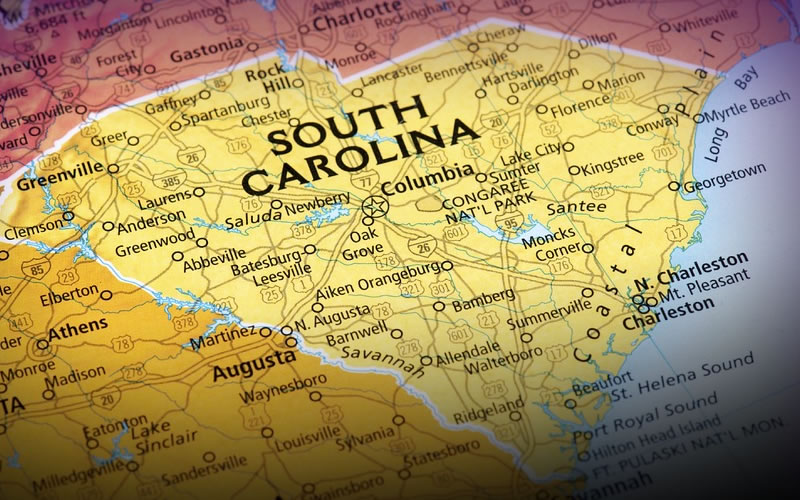
EDITOR’S NOTE: Longtime political journalist Louis Jacobson offers this overview of modern-day politics and economics in South Carolina, which also appears in the latest installment of the Almanac of American Politics. Republished with permission, we offer it to you exclusively.
By Louis Jacobson, Almanac of American Politics | In recent years, South Carolina has been vaulted into the headlines for tragic incidents and efforts at reconciliation. In 2020, it helped elect a president.

Tragedy and coexistence have been dueling parts of South Carolina’s history from the beginning. The state’s early influence was the slave-majority, sugar-producing island of Barbados, which produced its original settlers; until 1855, South Carolina was the only colony or state with a Black majority. On the one hand, Carolina plantation owners were tolerant of some groups, opening their colony to French Huguenots and Sephardic Jews. At the same time, they were also slave masters of giant plantations that produced rice and indigo. South Carolinian Charles Pinckney led the effort to enshrine the principle of no religious tests for political office in the Constitution; he was also a slaveholder. Lowcountry planters maintained effective control of the legislature, and therefore the state’s two Senate seats and presidential electors, up through 1860. In that year and the next, South Carolina did more than any other state to precipitate the Civil War. In December, after the election of Abraham Lincoln, the South Carolina legislature voted to secede from the Union and was soon followed by other states. In April 1861, a cannon in Charleston fired on Union troops at Fort Sumter.
Civil War transformed state
Defeat in the Civil War transformed South Carolina. The state’s slaves, 57 percent of the population in 1860, were freed. One of the wealthiest states became one of the poorest. Some 30 percent of military-age White males were killed. Reconstruction briefly gave Black Republicans political control, but the backlash was fierce once federal troops left; strict racial segregation and voting restrictions, including the poll tax, kept most South Carolinians disenfranchised. As late as 1944, in a state of 2 million people, only 103,000 voted for president, with 88 percent of them voting Democratic. The Lowcountry languished in poverty, with malnutrition on coastal islands. A silver lining was architectural—the old mansions of Charleston were not replaced by commercial buildings, and instead were saved by the nation’s first local historic preservation movement (and rebuilt after Hurricane Hugo in 1989), cementing the city’s culture and civic pride. Mostly White Upstate South Carolina, with a growing textile industry, took the political lead, led by such politicians as Pitchfork Ben Tillman (governor 1890-94, senator 1895-1918) and a close friend’s son, Strom Thurmond (governor 1947-51, senator 1954-2003).
More recently, South Carolina took steps forward. In the civil rights era, most Whites opposed integration, but unlike in Alabama and Mississippi, the effort was mostly not punctuated by violence. The Civil Rights Act of 1964 and the Voting Rights Act of 1965 ended legal segregation of public accommodations and workplaces and brought Blacks into the electorate. Democratic (and later Republican) U.S. Sen. Thurmond, who staged a record-setting filibuster of the 1957 Civil Rights Act, began appointing Black staffers and signed off on a Black federal judge. By the 21st century, the state elected Nikki Haley, a daughter of immigrants from India, and then Tim Scott, an African-American, to the U.S. House and later to the U.S. Senate, respectively; in this strongly conservative state, their ideology was what mattered.
Biggest recent change: Economic

In many ways, the biggest change has been economic. Half a century ago, much of South Carolina’s economy depended on military bases and big textile mills in the Interstate 85 corridor around Greenville and Spartanburg. Then South Carolina became the most aggressive state in the South in seeking new industry. It advertised its business climate, with one of the nation’s lowest rates of unionization and taxation and a willingness to splurge on tax incentives. Crucially, Democratic Gov. (later U.S. Sen.) Ernest Hollings spearheaded the creation of the state’s technical colleges, which today educate and train hundreds of thousands of residents a year. (Hollings died in 2019.) Michelin opened the first of several South Carolina plants in 1975, and the first BMW vehicles rolled off the Spartanburg assembly line in 1992. Volvo chose a South Carolina site 30 miles northwest of Charleston as the location of its first North American assembly plant, while companies such as Bosch, Fujifilm and Adidas built factories throughout central and Upstate South Carolina. In recent years, South Carolina has been neck-and-neck with North Carolina for the nation’s lowest rate of unionization, just above 2 percent of all workers.
Navy bases were the mainstay of Charleston’s economy in the 1970s, but they were closed in the early 1990s and subsequently became a center of aircraft production, particularly after Boeing in 2009 chose North Charleston as the location of a plant to assemble its 787 Dreamliner. The aircraft giant now employs 6,800 people in the Charleston area, though the company has been enmeshed in a long-running battle over unionization. Charleston has become a major port, which is especially helpful for the state’s international exporters; the state wants to dredge Charleston Harbor so container ships can traverse it regardless of tidal conditions. Charleston’s downtown has not only survived but thrived, thanks in large part to the creative energy of (former) longtime Mayor Joseph P. Riley Jr., who was first elected in 1975 and who served for 40 years. With a keen aesthetic eye, he made the city’s historic center a magnet for tourists; statewide, tourism has grown consistently, passing the military’s statewide economic impact in 2016.
Despite economic gains, South Carolina has only three Fortune 500 companies headquartered locally, compared to 14 each in neighboring North Carolina and Georgia. But the state dodged a bullet with the trade war waged by President Donald Trump. Exports hit a record $41.5 billion in 2019, up almost 20 percent, and exports shipped through the Port of Charleston rose more than 5 percent. Despite bilateral trade tensions, the flow of goods with China remained steady. BMW maintained its lead as the top U.S. vehicle exporter; collectively, jets from Boeing and vehicles from BMW and Volvo accounted for more than half of South Carolina’s exports in 2019. One of every six vehicles exported from the U.S. now comes from South Carolina, as well as one-third of tire exports. However, the coronavirus pandemic caused economic distress in 2020, particularly in tourism-heavy regions such as Myrtle Beach and Charleston.
Poverty still an issue
In the meantime, poverty remains in many areas of the state. South Carolina’s median income ranks in the bottom 10 states nationally, a full 14 percent below the national average; the poverty rate is a few percentage points higher than the nation as a whole. South Carolina ranks in the bottom quarter of states for the percentage of residents with a college degree, and teacher pay has not kept up with inflation since 2003, when the GOP gained full control of state government, according to a Charleston Post and Courier analysis.

Race has continued to be a defining issue for South Carolina. In 2015, Dylann Roof, a man with a history of White supremacist beliefs, entered a historic African-American church in Charleston, sat down for Bible study, then systematically gunned down nine Black worshippers—including the pastor, state Sen. Clementa Pinckney–as he squeezed the trigger more than 75 times. The attack took place in the successor to the very same church that was the epicenter of the 1822 slave rebellion led by Denmark Vesey, which ended with the execution of Vesey and numerous lieutenants, as well as the destruction of the church. (Before his death, Pastor Pinckney had been active in erecting a memorial to Vesey.)
Amid the mourning, a debate about old subjects—race and Confederate heritage—reemerged. Critics said the state should finally do what it had previously balked at: Remove the Confederate battle flag from the state capitol grounds in Columbia, where it had flown, in one way or another, since 1962. Haley, who prior to the killings had shown little interest in following her predecessors’ failed efforts to pull down the flag, offered her support for removal, and the tide began to turn. On July 10, 2015, the flag was lowered from the statehouse grounds for good. Roof was sentenced to death in 2017, the nation’s first federal hate-crime defendant to face the death penalty. Meanwhile, another high-profile case—a videotaped police shooting in North Charleston in which a Black man, Walter Scott, was shot in the back by a white police officer—produced first a deadlocked jury and then a plea agreement that resulted in a 20-year prison sentence.
People moving to Palmetto State
Through the 1960s, few people except military personnel moved to South Carolina. That has changed in a big way. Since 2010, the population has grown 10.7 percent, driven by migration from other states. The growth has been fastest on and near the coast—31 percent during the past decade in Horry County (Myrtle Beach), 27 percent in Berkeley County (northern suburbs of Charleston), 19 percent in Dorchester County (the northwestern suburbs of Charleston), 18 percent in Beaufort County (Hilton Head), and 17 percent in Charleston County (Charleston). The York County suburbs of booming Charlotte North Carolina, meanwhile, have grown 24 percent. These booming areas attract predominantly White tourists and affluent retirees who are eager to spend days with pleasant weather on the golf course and in time-shares. The percentages of White residents (63 percent) and Black residents (26 percent) have remained stable for a decade, with relatively small populations of Hispanics (5.7 percent) and Asians (1.7 percent). The fastest-growing portion of South Carolina’s population consists of senior citizens, a group that has increased from 12 percent in 2000 to 14 percent in 2010 to 18 percent today. By 2030, the state is expected to have more residents 65 and older than children in school.
The influx of White retirees has moved South Carolina politically toward Republicans. Politics cleaves the electorate along racial lines, and the hard math of the population figures makes it difficult for Democrats to win statewide. South Carolina has voted Republican for president in every election but one since 1960—in 1976, when son of the South Jimmy Carter was running.
Early presidential primary plays national role
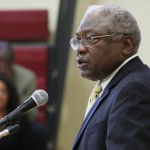
But it’s South Carolina’s early primary that often plays a pivotal role for one party or the other, and few were more consequential than the 2020 Democratic primary. Coming off poor finishes in Iowa, New Hampshire and Nevada, Joe Biden bet everything on a win in South Carolina. And after U.S. Rep. James Clyburn, the state’s most influential Black Democrat, endorsed Biden three days before the primary, he ended up winning the state so convincingly that most of the remaining Democratic candidates fell in line. “You brought me back,” Biden told Clyburn—all the way to the presidency.
Trump—who had forged ties with such leading South Carolina Republicans as U.S. Sen. Lindsey Graham, Gov. Henry McMaster, Haley and White House Chief of Staff Mick Mulvaney—won the state easily in both 2016 and 2020, with Trump’s winning margin narrowing by only two points statewide. The seven most populous counties all shifted in the Democrats’ direction by between three and seven points, but less-populated areas shifted toward Trump, including two counties, Clarendon and Dillon, that flipped from Hillary Clinton in 2016 to Trump in 2020. Graham managed to win reelection by double digits, despite a strong Democratic opponent in Jaime Harrison, a massive fundraising deficit and lots of baggage accumulated during the Trump years. Indeed, Trump’s and Graham’s showings were almost in lockstep, underscoring how inflexible South Carolina’s racially driven voting patterns are. And they are likely to persist.
Louis Jacobson is a senior author of the Almanac of American Politics. This column, republished with permission exclusively in South Carolina, comes from the almanac’s new 50th Commemorative Edition for 2022. It can be purchased online or by calling 1-888-265-0600. BONUS: Use the code “15AAP2022” for a 15 percent discount during check-out.
- Have a comment? Send to feedback@statehousereport.com
State Supreme Court throws out school mask mandate

Staff reports | South Carolina’s highest court on Thursday tossed out a school mask mandate in the state’s capital city, saying it contradicts a state budget measure aimed at preventing face covering requirements.
According to the Associated Press, the court ruled unanimously that “the Columbia ordinance is written so that the burden of enforcing the mask rule falls on school employees, ‘all of whom have an obvious connection to state-appropriated funds.’”
Columbia Mayor Steve Benjamin reacted strongly: “This is a sad day for children in South Carolina. What is even sadder is the people who have been elected to protect them, who should always and only act to keep them healthy, educated and alive, won’t fight for them. With record numbers of our children falling ill to this deadly virus, we pray for our children.”
In other recent news:
![]() COVID-19 still rages. S.C. health officials reported 5,229 total cases of COVID-19 Sept. 2, with 3,572 confirmed. A total of 60 new deaths, with 44 confirmed, were reported Thursday, a dramatic increase compared to days prior. With 32,408 tests reported, 14.5% were confirmed positive. Meanwhile, North Charleston became the first local government in the state to mandate vaccines for city employees. Charleston County also is mandating vaccines.
COVID-19 still rages. S.C. health officials reported 5,229 total cases of COVID-19 Sept. 2, with 3,572 confirmed. A total of 60 new deaths, with 44 confirmed, were reported Thursday, a dramatic increase compared to days prior. With 32,408 tests reported, 14.5% were confirmed positive. Meanwhile, North Charleston became the first local government in the state to mandate vaccines for city employees. Charleston County also is mandating vaccines.
Charleston remembers former S.C. Rep. Lucille Whipper. Whipper, a longtime community advocate, died Aug. 27. She pushed for social and economic change.
Battle over spit near Kiawah is over. In a big win for the conservation community, a dispute over whether Kiawah Development Partners can build on a sand spit appears to be over after the state’s Supreme Court sided with environmentalists who argued against building in the ecologically sensitive area and then refused to revisit the case on Wednesday.
Lawsuit challenges gag orders imposed on S.C. ethics whistleblowers. In South Carolina, whistleblowers who want to file an ethics complaint against a public official are first sworn to secrecy, The Post and Courier reported this week.
Contractor at failed nuke project agrees to pay $21 million. Westinghouse Electric Co. has agreed to pay more than $21 million as part of an agreement with federal officials probing a failed multi-billion dollar project to build two nuclear reactors in Fairfield County.
- Have a comment? Send to: feedback@statehousereport.com.
Whale crossing

Cartoonist Robert Ariail always has an interesting take on what’s going on in South Carolina. His weekly “Lowcountry” strip is originally drawn for our sister publication, the Charleston City Paper. Love the cartoon? Hate it? What do you think: feedback@statehousereport.com. Check out the Best of Charleston 2021.
South Carolina now has a Yahoo Caucus

By Andy Brack, editor and publisher | It wasn’t too long ago that South Carolina’s congressional caucus carried a lot of clout, punching well above its weight for a state its size. Today? Not so much.
 Back in the 1990s when Republicans controlled the U.S. Senate, South Carolina’s Strom Thurmond chaired the powerful Armed Services Committee just a few years after heading the Senate Judiciary Committee. His colleague, Democratic U.S. Sen. Fritz Hollings, was a major federal appropriator and, when Democrats were in control, ran the Senate Commerce Committee.
Back in the 1990s when Republicans controlled the U.S. Senate, South Carolina’s Strom Thurmond chaired the powerful Armed Services Committee just a few years after heading the Senate Judiciary Committee. His colleague, Democratic U.S. Sen. Fritz Hollings, was a major federal appropriator and, when Democrats were in control, ran the Senate Commerce Committee.
On the House side, Butler Derrick represented the Aiken-Anderson area of the state for 20 years until retiring in 1995. During his tenure, he was a key player on the House Rules Committee and served on the House Budget Committee, on which Rock Hill colleague John Spratt was ranking Democrat from 1995 until he became chairman 12 years later. Republican Floyd Spence of Lexington, first elected to Congress in 1970, chaired the House National Security Committee from 1995 to 2001.
Bottom line: Of the eight members of the congressional delegation in the 1990s, five chaired committees or were in the senior leadership. These days, only two of South Carolina’s nine members of Congress have any real influence. U.S. Rep. Jim Clyburn, first elected in 1992, serves as House Majority Whip, the third-ranking leader in the Democratic-led House. In the Senate, Lindsey Graham, first elected in 1994, is the ranking Republican on the Senate Budget Committee and a past chair of the Senate Judiciary Committee.
The rest of them? They mostly do a lot of yammering. South Carolina’s congressional delegation has fallen from grace to become the Yahoo Caucus.
There’s Republican Jeff Duncan, who represents the Aiken-Anderson area. In recent days, he co-sponsored a measure by a nutjob from Georgia to impeach President Biden after the country’s evacuation of Afghanistan at the end of a 20-year war. Duncan seems to fail to remember the evacuation was carried out because of a settlement negotiated by the man he hero-worships — former President Donald Trump. Even Republican Senate leader Mitch McConnell of Kentucky didn’t see removal as a possibility.
Not to be outdone, Congressman Joe “You Lie” Wilson of Lexington called for Biden and others to resign over the withdrawal, despite the successful and quick wartime evacuation of more than 120,000 people. Also on the resignation bandwagon are Upstate Reps. William Timmons and Ralph Norman, as well as Myrtle Beach Rep. Tom Rice, who is struggling to keep his seat after voting with Democrats to impeach Trump in January.
Graham, known as a Trump whisperer who has continuing Florida golf trips with the former president, said his former friend Biden “deserves to be impeached” over Afghanistan. Center-right columnist Kathleen Parker, a Pulitzer Prize winner who lives in Camden, this week described Graham as “the nation’s most-confounding flip-flopper” who is in a continual quest for relevance.
Then there’s U.S. Rep. Nancy Mace, the Daniel Island Republican who made a predictable pilgrimage to Texas this week to visit the U.S.-Mexico border. It was an obvious ploy to grab headlines and throw red meat to the base — just like when she recently wore a holstered pistol to a county GOP meeting.
None of this yahooism surprises Trav Robertson, chairman of the S.C. Democratic Party, as South Carolina has devolved from a state with power at the federal level to one that has more in common with lemmings than leadership.
“I never thought that I would see the day that a group of Republicans in South Carolina would support sedition and treason like this group of cowards does,” he said. “They are proving to be intellectually inferior beings who don’t have the ability to help people in this state or bring home the bacon.”
The yahoos don’t have to keep winning. Vote them out.
- Have a comment? Send to: feedback@statehousereport.com.
Conservation Voters of South Carolina
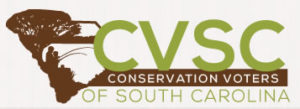 The Conservation Voters of South Carolina is a statewide nonprofit organization that fights for the Palmetto State’s air, water, land and energy through political action. The organization is bipartisan, pragmatic and effective.
The Conservation Voters of South Carolina is a statewide nonprofit organization that fights for the Palmetto State’s air, water, land and energy through political action. The organization is bipartisan, pragmatic and effective.
Through scorecards and advocacy at the Statehouse, CVSC holds South Carolina legislators accountable for their votes and actions. As a small organization that operates as a nonprofit and has a political action committee, we have a big impact. Learn more today by clicking any of the links below:
- CVSC Legislative Scorecards
- CVSC Issues
- CVSC News
- How to take action with CVSC
Where are the leaders?
To the editor:
![]() When times are lean, the focus is on making every dollar count. Scarcity forces a discipline. Probing questions. Government annual program-funding decisions and capital investments get rooted in a solid understanding of the real needs. Decision-makers are focused by the practicality of the immediate and the longer-term results to be realized. Deep homework is required.
When times are lean, the focus is on making every dollar count. Scarcity forces a discipline. Probing questions. Government annual program-funding decisions and capital investments get rooted in a solid understanding of the real needs. Decision-makers are focused by the practicality of the immediate and the longer-term results to be realized. Deep homework is required.
When the surpluses arise, the focus can be on repairing the harm and putting in place stuff that had a chance of living up to the billing for the proposal. That is not automatic. It calls for leadership. Leadership is what officials with authority use active foresight when the pleadings emerge for this and that to spend the money on are turned higher. The brighter lights of leadership stay rooted in a solid understanding of the real needs and validated potential.
It may sound laughable but the times of excess, as we now have with the COVID funding and state revenue growth, are more difficult to navigate than the times of lean. Today’s Post and Courier announced we have plenty of moolah. The multitude of money claimants are out. Some residing in the Statehouse are pushing their money grab.
Now is the time to turn on the examinations. Not mullings. Justify fully in concrete terms answering well the “why” to giving away real money. This is a once-in-a-lifetime pot. Lottery scale winnings.
Identify the best that will pay back in our future the way we want. This requires foresight mixed with some courage. Where is our leadership coalition to sort this out and lay in the needed keel for our journey into our indefinite future?
— Fred Palm, Edisto Island, S.C.
Send us your thoughts. We receive a few comments a week and look forward to publishing. But often we can’t because we can’t verify the identity of the writer. To be published, you’ve got to provide us with contact information so we can verify your letters. Verified letters to the editor are published weekly. We reserve the right to edit for length and clarity. Comments are limited to 250 words or less. Please include your name and contact information.
- Send your letters or comments to: feedback@statehousereport.com
Great-looking garden
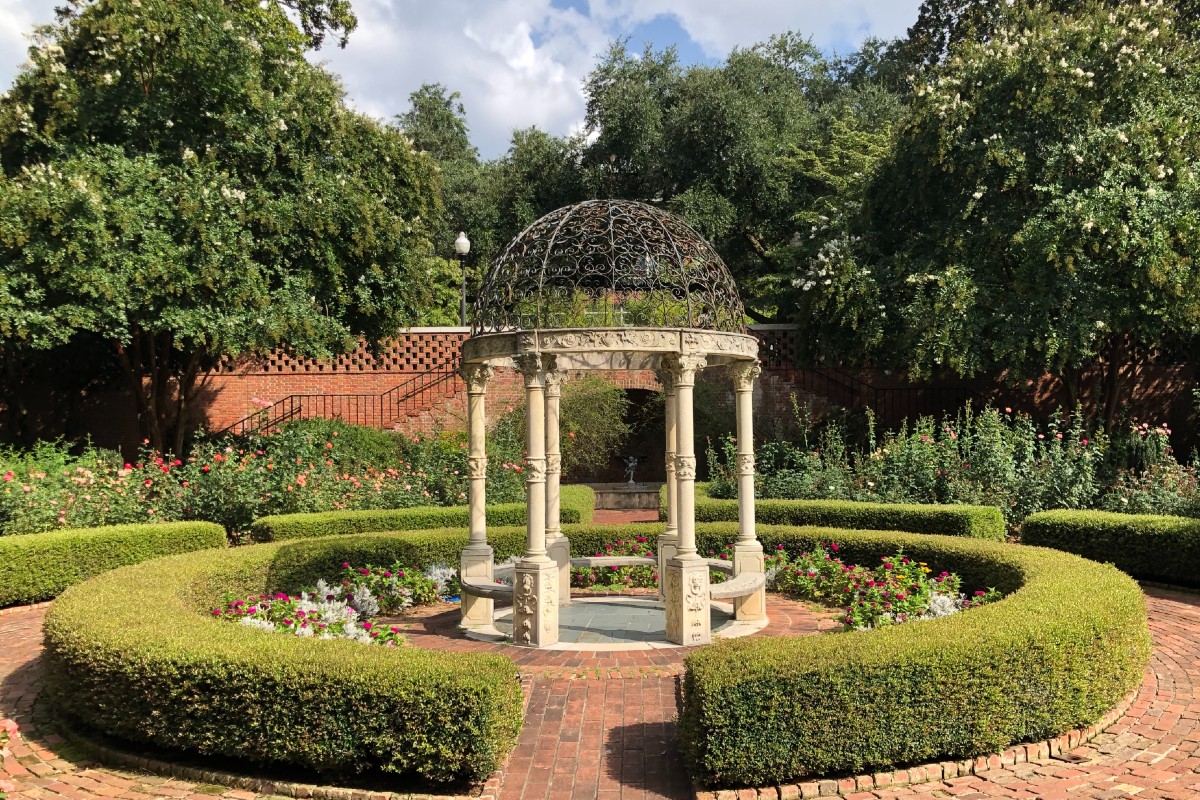
Here’s a great-looking garden filled with roses. But where is it? Can you tell us anything else about it? Send your guess to feedback@statehousereport.com — and remember to include your name, home city and contact information.
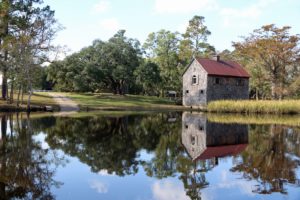 Last week’s mystery, “This one may be too hard,” proved to be relatively easy to several Statehouse Report readers. The photo, sent in by Bill Segars of Hartsville, shows a little-seen view of the Chicora Wood Plantation rice shipping house along the shore of the Great Pee Dee River in the Plantersville area of Georgetown County.
Last week’s mystery, “This one may be too hard,” proved to be relatively easy to several Statehouse Report readers. The photo, sent in by Bill Segars of Hartsville, shows a little-seen view of the Chicora Wood Plantation rice shipping house along the shore of the Great Pee Dee River in the Plantersville area of Georgetown County.
Congratulations to the five readers who correctly identified it: George Graf of Palmyra, Va.; Kevin Mertens of Greenville; Elizabeth Jones of Columbia; Allan Peel of San Antonio, Texas; and Jacie Godfrey of Florence.
Peel shared that the building was part of a rice plantation established by John Allston in the mid-1730s. “The structure shown in the mystery photo is a storage facility on the banks of the river where rice would be prepared and stored for eventual transportation along the river.”
- Send us a mystery. If you have a photo that you believe will stump readers, send it along (but make sure to tell us what it is because it may stump us too!) Send to: feedback@statehousereport.com and mark it as a photo submission. Thanks.
ORDER NOW: Copies are in Lowcountry-area bookstores now, but if you can’t swing by, you can order a copy online today.
ABOUT STATEHOUSE REPORT
Statehouse Report, founded in 2001 as a weekly legislative forecast that informs readers about what is going to happen in South Carolina politics and policy, is provided to you at no charge every Friday.
- Editor and publisher: Andy Brack, 843.670.3996
Donate today
We’re proud to offer Statehouse Report for free. For more than a dozen years, we’ve been the go-to place for insightful independent policy and political news and views in the Palmetto State. And we love it as much as you do.
But now, we can use your help. If you’ve been thinking of contributing to Statehouse Report over the years, now would be a great time to contribute as we deal with the crisis. In advance, thank you.
Buy the book
Now you can get a copy of editor and publisher Andy Brack’s We Can Do Better, South Carolina! ($14.99) as a paperback or as a Kindle book ($7.99). . The book of essays offers incisive commentaries by editor and publisher Andy Brack on the American South, the common good, vexing problems for the Palmetto State and interesting South Carolina leaders.
More
- Mailing address: Send inquiries by mail to: P.O. Box 21942, Charleston, SC 29413
- Subscriptions are free: Click to subscribe.
- We hope you’ll keep receiving the great news and information from Statehouse Report, but if you need to unsubscribe, go to the bottom of the weekly email issue and follow the instructions.
- Read our sister publications: Charleston City Paper (every Wednesday) | Charleston Currents (every Monday).
- © 2021, Statehouse Report, a publication of City Paper Publishing, LLC. All rights reserved.



